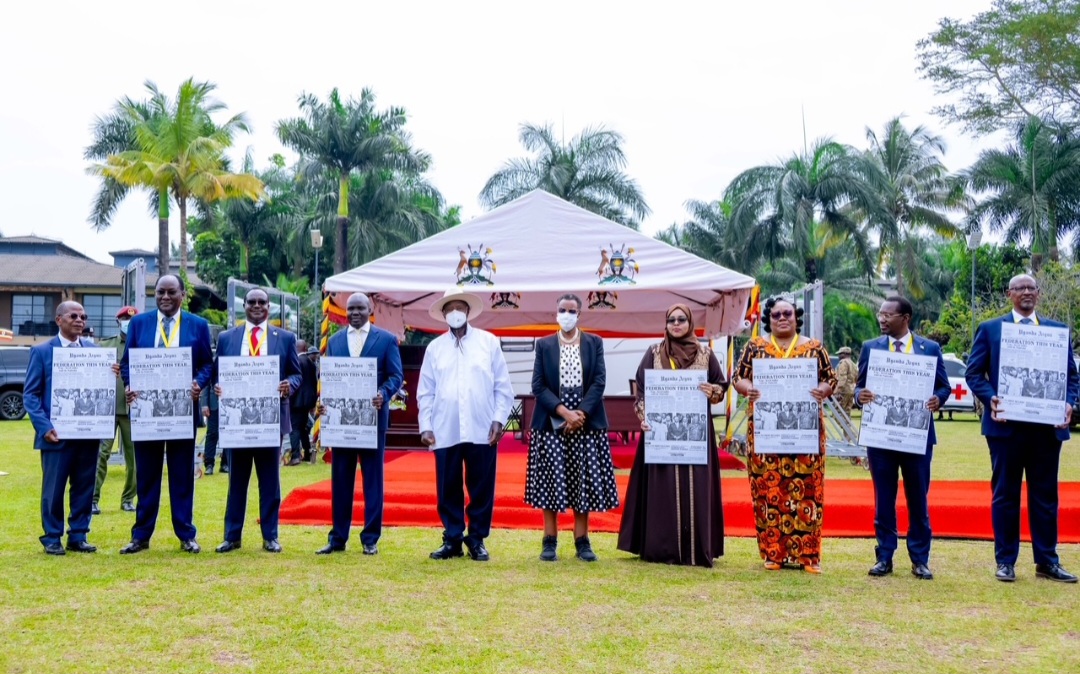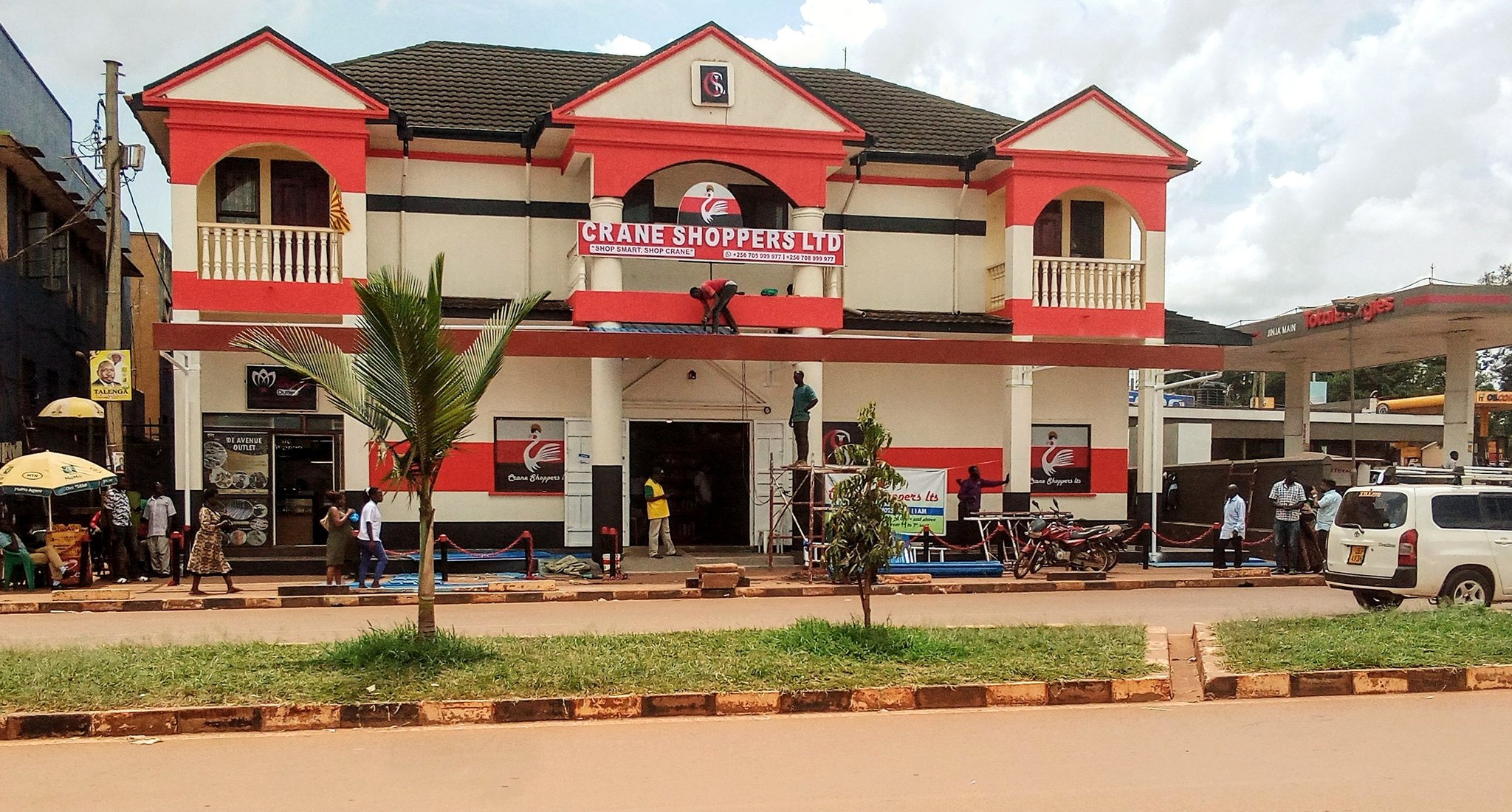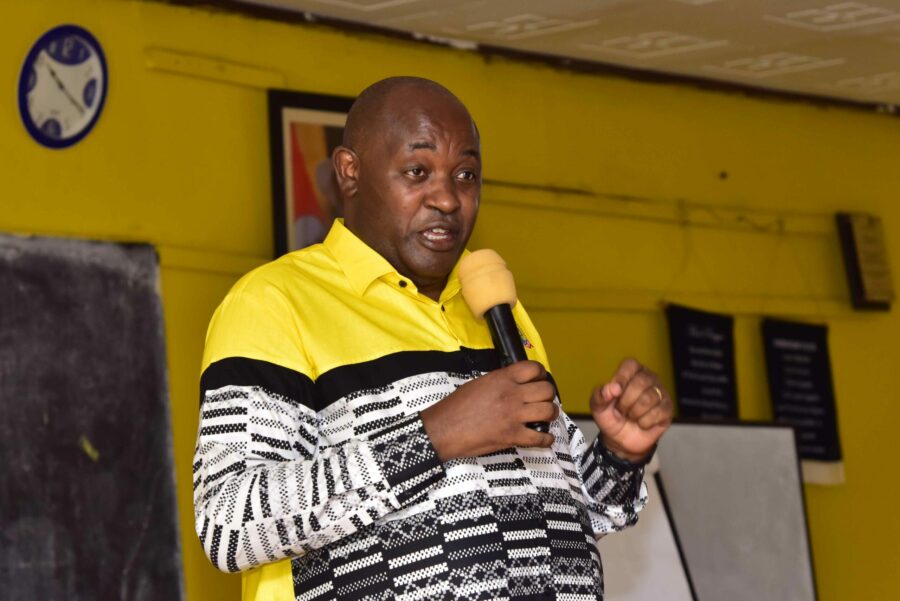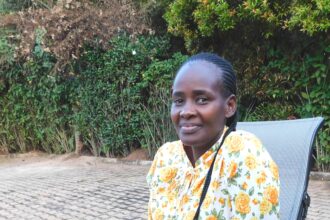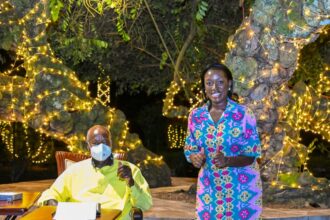President Yoweri Kaguta Museveni has urged East African countries to embrace integration as the surest path to prosperity, security and transformation.
Speaking at the opening of the 1st Regional Ministerial Conference on the East African Community Common Higher Education Area (EACCHEA) at Speke Resort, Munyonyo, today, the President outlined five reasons why integration is essential — prosperity, socio-economic transformation, Pan-Africanism, democracy, and strategic security.
He also emphasized that prosperity can only be achieved if individuals, families, and companies produce goods or services sustainably and sell them in wider markets.
“The only way to achieve prosperity is when each family, company, or individual is involved in producing a good or a service with ekibaaro (calculation). If you do that sustainably and sell it, you will get money and solve your problems,” the President said.
He noted that unity is necessary to expand markets, overcome the divisive politics of identity, and build patriotism, which he described as the first principle of the National Resistance Movement (NRM).
The President stressed that education must support socio-economic transformation by equipping citizens to benefit from regional markets. He added that democracy and strategic security are also pillars of integration, noting that Uganda’s progress as a lower middle-income country would not be sustainable without regional stability.
“With all that is happening all over the world, if you are weak you cannot survive. Apart from economic integration for the whole of Africa, where possible there should also be political integration,” he said.
The President also called for reforms in the education sector, particularly resolving curriculum and syllabus issues, to ensure that better learning supports development.
On her part, the First Lady and Minister of Education and Sports, Maama Janet Museveni revealed that a little over eight years ago in May 2017, the East African Community was declared a Common Higher Education Area, however, this meeting marks the first Regional Ministerial Conference for Higher Education to review the journey they have walked since inception of the Common Higher Education Area.
“I believe that the review of our Common Higher Education Area during this Conference shall also help us answer questions such as: First, the extent to which as EAC partner states we have made our Common Higher Education Area not only competitive as an attraction for both students and academic faculty, but the private sector too as true partners of development,” she said.
“Second, the extent to which the Common Higher Education Area has become a catalyst for the various efforts by the respective partner states to bring about socio-economic transformation of their people.”
Maama Janet noted that as Ministers responsible for Education in the region, they do not see themselves as only policymakers, but stewards of a shared vision of socio-economic transformation of their people.
She said they see Higher Education both as an enabler as well as a critical building block in this house they call the East African Community.
“Relatedly, the people for whom we are here to serve in our respective capacities perceive the relevance of the Common Higher Education Area from their own perspective. The young people want to witness mobility of talent and mutual recognition of qualifications amongst the EAC partner States,” she said.
“The private sector perceives the relevance of a Common Higher Education Area as being responsive to industry and job market by way of producing inventions and innovative services and products that will add value to the consumer’s experience.”
Maama Janet further said the governments will appreciate the relevance of a Common Higher Education Area when the sub-sector becomes a source of pragmatic policy solutions to the pressing problems in society aspiring for socio-economic transformation.
This, she said, implies that their aspiration for an integrated Higher Education Area is purposeful because it does not seek to fulfill the self-interests of Higher Education per se, but the greater good of the more than 300 million people in the East African Community.
“Ultimately, this strengthens the case for the elimination of all barriers to the realization of a truly integrated and common Higher Education Area in which the sub-sector is perceived by both the private sector and the State, as a valuable partner to socio-economic transformation – and not merely another area of expenditure,” she urged.
“The ever-increasing population of the East African Community presents a valuable asset and market to the Higher Education sub-sector to position itself – as it ought to be, an indispensable driver of socio-economic transformation through responsive research, innovations, inventions, knowledge creation, and policy eco-system that answers our society’s most pressing challenges,” she added.
The Minister cited an example where the government of the Republic of Uganda has for the last four years, been implementing a nationwide program called the Parish Development Model (PDM), saying the program seeks to bring into the money-economy those households that have been in a subsistence lifestyle.
“PDM has been disbursing funds directly to beneficiaries in those households. Recently, I was moving around with His Excellency the President during his nationwide tours to see what the PDM program is doing. As we moved around, we witnessed varying levels of success and impact of this program. However, some of these subsistence households live within the surroundings of Higher Education Institutions,” she said.
“So, I keep asking myself whether there is a way these Higher Education institutions can be of value to the government’s grassroot programs such as PDM? Now, this is the relevance I was referring to earlier. Higher Education needs to transform itself from being perceived as an ivory tower of ideas, to becoming the solution to common socio-economic challenges that households encounter in their day-to-day lives,” she noted.
The First Lady explained that Higher Education can be innovative in driving a cottage industry mindset whereby once a student graduates, he or she thinks of what they can do first and foremost from one’s home or household before looking elsewhere.
“Many of these developed economies we so admire have propagated this culture of cottage industries to lift communities out of subsistence living and poverty. You can imagine if the estimated 70 percent of the EAC population that lives in rural areas was fired up with a culture of cottage industry – how much socio-economic transformation would that bring our society?” she inquired.
“As most of you already know, the challenges that our people face are not unique to a particular partner state, but transcend national borders – and as such demand regional solutions. Can a Common Higher Education Area be the source of such solutions? Therefore, this Ministerial Conference will offer to the Partner States an opportunity to review and consolidate progress in the harmonization of higher education systems across our Partner States for the greater good of our society through socio-economic transformation.”
Maama Janet added that the Common Higher Education Area will not only make East Africa more attractive to students from within and outside Africa but will play a pivotal role in positioning the EAC region as a nucleus of excellence, innovation, and competitiveness.
“It will strengthen our regional integration by ensuring that our graduates are employable across Partner States and beyond and that our institutions can pool expertise for greater impact,” she stated.
“As Uganda, we reaffirm our government’s commitment to supporting the EAC Common Higher Education Area in various ways. We look forward to this Conference laying a strong foundation for the implementation of resolutions that will transform our region’s education landscape for generations to come.”
The National Council for Higher Education Executive Director also chairperson of the Forum of CEOs of National Council and commissions for Higher Education in East Africa, Prof. Mary J.N Okwakol described the conference as a landmark moment for the region.
“This Conference signals a shared commitment to a higher education setting that is coherent, competitive, and trusted across the region,” Prof. Okwakol said.
She underscored the need to harmonize education systems, boost student and labor mobility, strengthen research collaboration, and address quality assurance challenges, while commending President Museveni for his support of science and innovation.
The Executive Secretary of the Inter-University Council for East Africa (IUCEA), Professor Gaspard Banyankimbona, praised President Museveni’s vision and Uganda’s hosting of the event, saying the meeting was a “landmark event” in East Africa’s integration journey.
He reaffirmed IUCEA’s commitment to advancing curriculum harmonization, academic mobility, and collaborative research.
“The free movement of skilled graduates, enabled by mutual recognition of qualifications and supported by scholarship programs, is not a distant ideal. It is a necessary condition for the success of the EAC Common Market and the broader integration agenda,” he said.
Prof. Banyankimbona urged partner states to use the conference not just to celebrate progress but to strengthen institutional mechanisms that will sustain the EACCHEA for generations to come.
Representing the EAC Secretary-General, Hon. Andrea Ariik, Deputy Secretary-General of the EAC, described the conference as “historic,” being the first time ministers responsible for higher education have convened specifically on the regionalization agenda.
He highlighted key milestones since the 2017 declaration of the EACCHEA, including the East African Qualifications Framework for Higher Education, the regional quality assurance framework, and policies supporting staff and student mobility and credit transfer.
“By working together, our higher education institutions can break barriers, harmonize standards, and unleash the full potential of our youth, academics, and researchers,” Hon. Ariik said.
While noting these achievements, he pointed to challenges such as underfunding, outdated infrastructure, and staff shortages.
He called for urgent investment in digital transformation, sustainable research financing.
Do you have a story in your community or an opinion to share with us: Email us at Submit an Article



